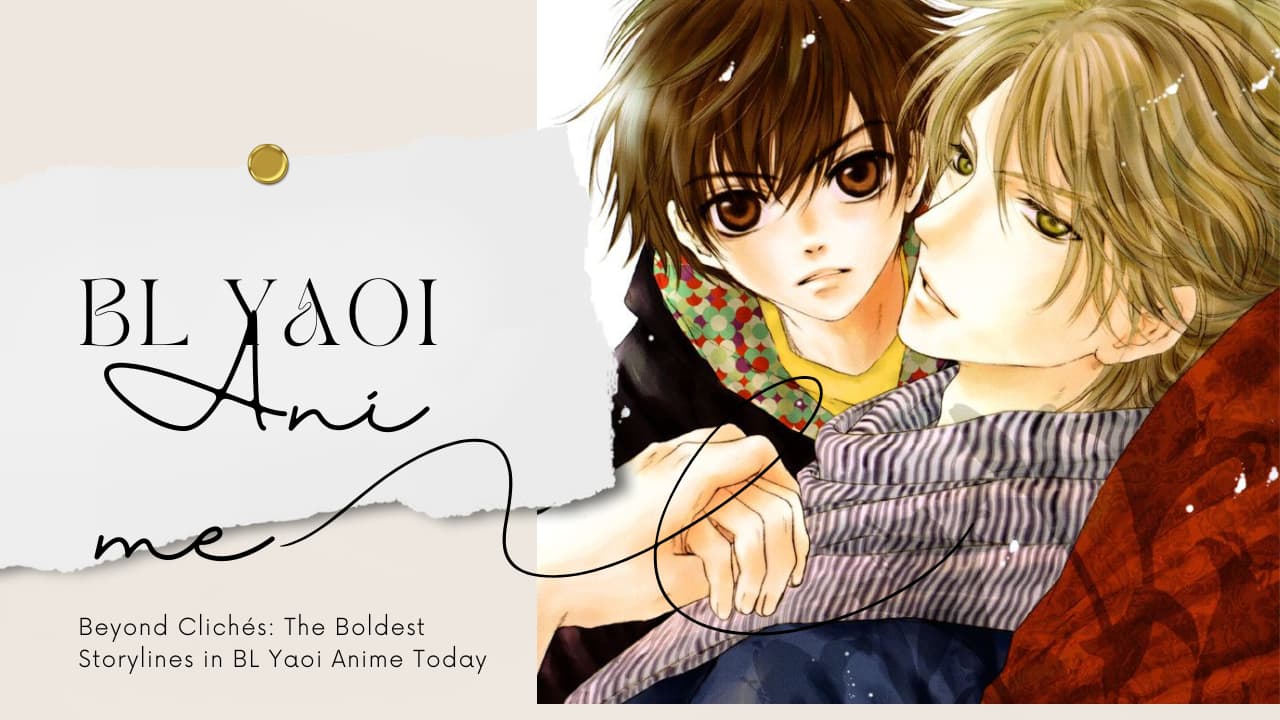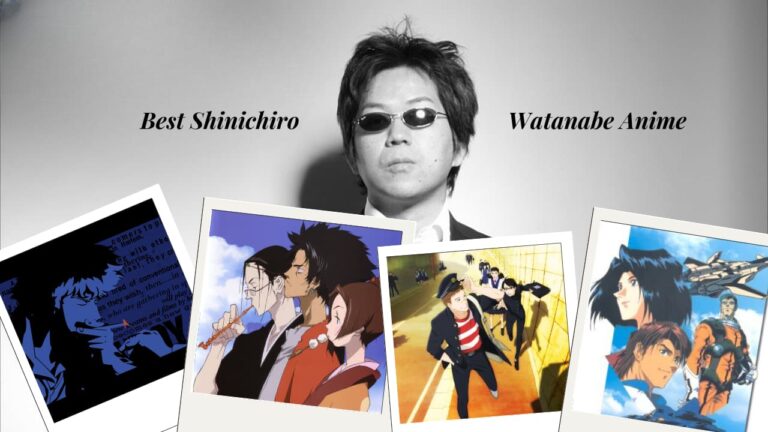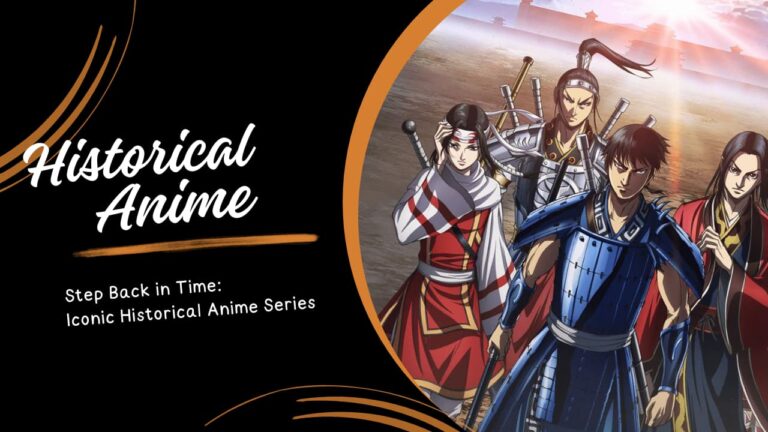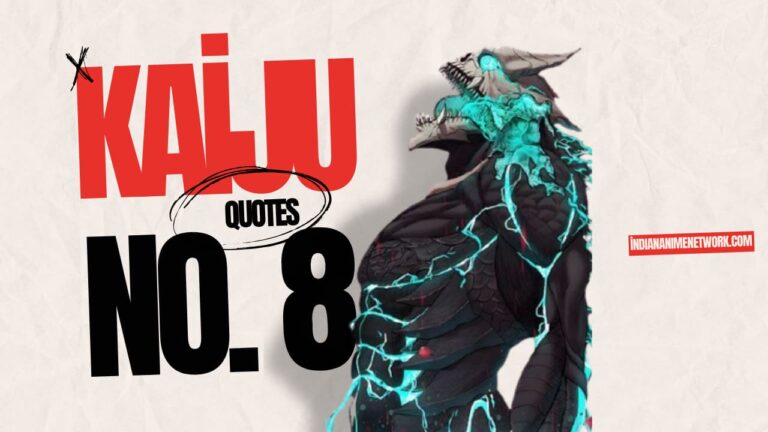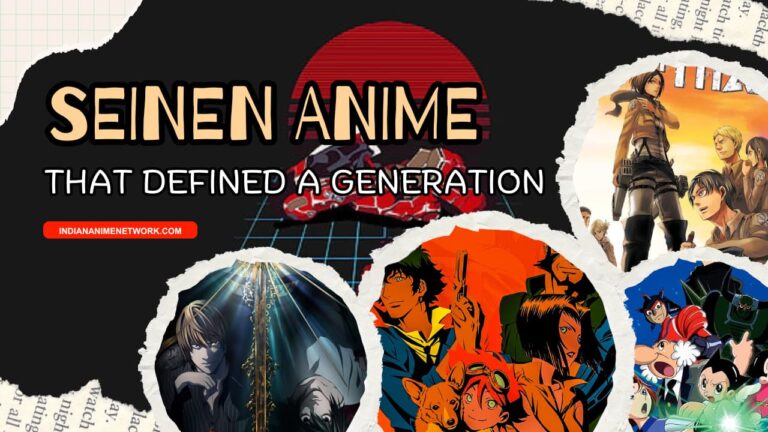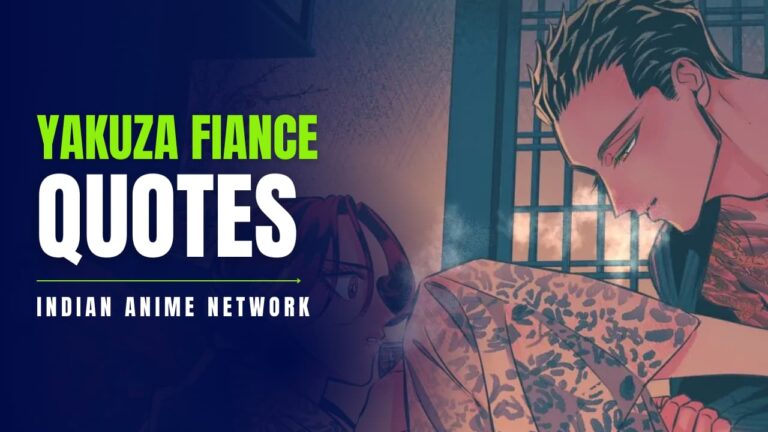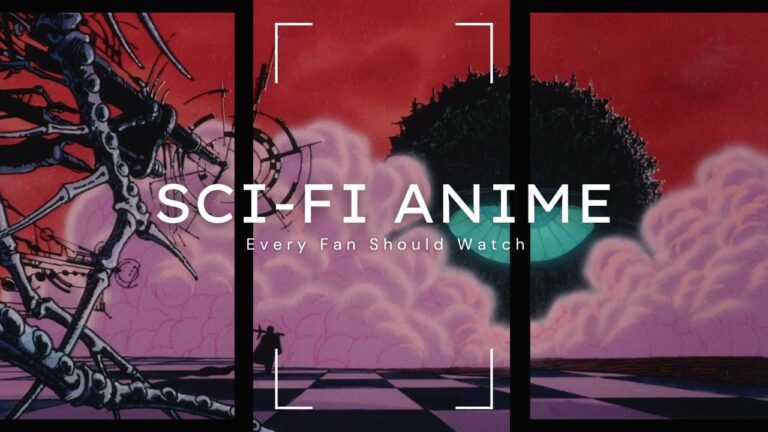6+ Best BL Yaoi Anime: A Perfect Watchlist for Every Mood
Yaoi, also known as “Boys’ Love” (BL), is a genre that focuses on romantic and often sexual relationships between male characters.
Originating in Japan, yaoi is targeted primarily at a female audience and explores themes of emotional and romantic intimacy between men.
While the genre’s roots can be traced back to the 1970s, it became more popular in the 1980s and 1990s, evolving into a significant subculture within manga and anime.
Yaoi differs from “bara,” another genre featuring male-male relationships but aimed at a gay male audience. In contrast, yaoi often idealizes relationships with an emphasis on aesthetics and emotional depth rather than realism.
The dynamics within Yaoi stories frequently involve character archetypes such as the “seme” (dominant partner) and the “uke” (submissive partner), though these roles can shift or be deconstructed depending on the narrative.
The genre’s influence extends beyond Japan, and it has garnered an international fanbase, particularly among young women.
Yaoi explores themes like forbidden love, emotional vulnerability, and sometimes power dynamics, with a broad range of tones from light-hearted romantic comedies to darker, more dramatic stories.
These series have been praised for their emotional storytelling and character development, though the genre as a whole has also faced criticism for sometimes perpetuating unhealthy relationship dynamics.
Yaoi’s growth has impacted not only anime and manga but also related media such as fan fiction and art, where it has become a significant genre in fan communities worldwide.
Without further ado, let’s get started. Heartthrobs and Heartbreaks: here are the 7 best BL Yaoi anime series (in no particular order) that will leave you swooning.
Junjo Romantica (2007):
Junjo Romantica is one of the defining titles in the Yaoi genre, centering on the relationships between three different couples.
The primary focus is on Misaki Takahashi, a young, somewhat naive student, and Akihiko Usami, an acclaimed novelist with a mysterious aura.
The show’s narrative builds around the dynamic between the two leads, as Misaki navigates his feelings for Akihiko, caught between confusion and affection.
The journey Misaki undergoes is not just a romantic awakening but also a discovery of self, as he grapples with Akihiko’s overwhelming presence and his own identity.
Set in a modern urban environment, the world-building revolves around academia and the literary world.
Misaki’s everyday life as a student intersects with Akihiko’s glamorous but emotionally complex world as a famous writer, creating a dichotomy between the ordinary and the elite creative lifestyle.
The origin of their relationship stems from Misaki’s need for a tutor and Akihiko’s unanticipated attraction, providing the foundation for a tale of evolving love and a broadening emotional spectrum.
The show doesn’t shy away from depicting intense emotional exchanges. “Love is not something you just let happen to you,” Akihiko says, reflecting the central theme of the show—the idea that love is an active force, something to be fought for and nurtured by.
Despite its controversial handling of certain themes, Junjo Romantica has made a significant impact on Yaoi anime, offering viewers a blend of romance, drama, and humor.
Its engaging characters and emotional depth help it remain a staple of the genre, showcasing the complexity of relationships.
As the series progresses, the intricacies of love and acceptance come to the forefront, making it memorable for its raw portrayal of love’s trials.
Sekaiichi Hatsukoi (2011):
Sekaiichi Hatsukoi presents a heartfelt depiction of love in the yaoi genre, set against the backdrop of the Japanese manga publishing industry.
The main male lead, Ritsu Onodera, finds himself entangled in a series of romantic complexities upon transferring to Marukawa Publishing.
His journey is one of rediscovery, as he reconnects with his high school love, Masamune Takano, now his stern boss.
The series explores themes of unrequited love, misunderstandings, and second chances, all while giving insight into the work environment of being a manga editor.
Ritsu’s character is driven by ambition and emotional conflict, wanting to prove himself professionally while struggling with unresolved feelings for Takano, which he had pent up in high school.
The world-building is grounded in realism, portraying the fast-paced world of manga editing, where deadlines and pressure shape the characters’ lives. Despite the industry setting, it’s the intricate emotional connections that dominate the narrative.
The art style enhances the emotional weight of their interactions, capturing both tender and intense moments with delicate expressions and soft, romanticized backdrops.
This adds depth to their relationship, making it easy to empathize with their evolving feelings.
As a yaoi anime, Sekaiichi Hatsukoi balances the genre’s traditional elements of passionate and sometimes tumultuous relationships with a surprisingly mature handling of past traumas and growth.
It stands out for its emotional resonance, weaving love, and career aspirations into a narrative that remains both enjoyable and poignant.
The conclusion leaves one pondering the complexity of love and whether it can truly transcend time and circumstance.
Given (2019):
Given is a beautifully woven musical yaoi anime that blends the emotional resonance of a coming-of-age story with the transformative power of music.
At its core, the narrative follows Mafuyu and his journey to find healing through music, particularly through his connection with the guitar.
The anime delves deep into the struggles of its characters, each grappling with their personal traumas and unspoken emotions, with music becoming both a refuge and a catalyst for growth.
Music is an intrinsic element of Given, with original songs like “Fuyu no Hanashi” carrying emotional weight far beyond their lyrics.
The poignant line, “This song is everything I couldn’t say,” speaks to the way the characters use music to express what they cannot vocalize in everyday interactions.
These moments of musical expression create some of the most powerful scenes in the series, where sound and silence intertwine to tell a story that words alone cannot convey.
Instrument history plays a crucial role, especially with the guitar, which becomes a symbol of unspoken grief and renewal for Mafuyu.
The series also pays homage to the dynamics of band life, from practice sessions to the charged energy of live performances, making the viewer feel the intensity of each note.
The precision with which the anime depicts musical techniques adds authenticity to the characters’ relationships with their instruments and the music they create together.
Given ultimately transcends the confines of a typical musical anime, offering a tender portrayal of love, loss, and the redemptive power of creation. T
The anime’s closing moments feel like the final notes of a song that lingers in the air—bittersweet, unresolved, and deeply impactful.
It’s a series that resonates with its audience long after the final performance, leaving an indelible mark through its profound marriage of music and emotion.
Super Lovers (2016):
I was hesitating to put this on the list. Some of you might not like it I know, but I wanted to add it here and here we are!
Super Lovers presents a controversial yet emotionally complex narrative within the yaoi genre, centered around the evolving relationship between Haru Kaidou and Ren Kaidou.
Haru, the main male lead, is depicted as the responsible older brother figure, whose calm demeanor and emotional maturity are central to Ren’s development.
Haru is tasked with taking care of Ren, a wild and emotionally distant boy he meets in Canada.
The world-building in Super Lovers focuses on this relationship, with the story primarily unfolding in domestic and everyday settings, contrasting with many other yaoi anime that delve into more dramatic or high-stakes environments.
The journey of Haru and Ren is both fraught with tension and marked by moments of tenderness. One of the most interesting aspects of this series is its exploration of familial bonds, love, and the blurred lines between both.
Ren’s gradual adjustment to life in Tokyo with Haru and his brothers creates a narrative full of understated yet significant emotional shifts.
Haru himself is caught between being a caregiver, a brother, and, eventually, a lover. As Ren matures, the balance between protector and romantic interest is explored in a way that pushes boundaries, making Super Lovers a disputable yet impactful series in the yaoi genre.
“The heart doesn’t understand logic. It doesn’t follow rules. It just feels,” Haru once says, capturing the emotional core of the series.
This quote emphasizes the show’s theme of emotional complexity, where the characters are driven by feelings they can’t always rationalize, challenging societal norms and their own beliefs.
While Super Lovers is not without its criticisms, particularly regarding the age difference and the ethical lines it toes, it has also found an audience that appreciates the slow-burn relationship and the emotional depth.
It reflects the complexities of human relationships and the difficult, often messy, emotions that come with them.
Yuri on Ice (2016):
Yuri on Ice won the inaugural Anime of the Year award at Crunchyroll’s Anime Awards in 2017.
Yuri on Ice (2016) transcends its yaoi genre roots, offering a nuanced exploration of love, self-doubt, and personal growth against the backdrop of professional figure skating.
The story centers around Yuuri Katsuki, a Japanese figure skater who, after a crushing defeat, returns home burdened by insecurity.
His journey takes a transformative turn when Viktor Nikiforov, a five-time world champion, becomes his coach, igniting a powerful dynamic that blends mentorship with romantic tension.
Yuuri is portrayed as introspective and vulnerable, struggling with self-confidence and the weight of expectations.
His relationship with Viktor is both a guiding force and a source of emotional complexity, bringing out the best and worst in him as he confronts his personal fears on and off the ice.
The world-building is grounded in the international skating circuit, with the series showcasing a global cast of skaters, each with distinct personalities, adding richness to the competition atmosphere.
“I’m not skating alone. I never have been,” Yuuri reflects during a pivotal moment, capturing the emotional depth that ties the characters together, not just as athletes but as people deeply intertwined in each other’s lives.
The animation quality is exceptional along with the presented soundtracks like History Maker, You Only Live Once…., particularly in the fluid and intricate skating sequences, where each routine feels like a visual poem, capturing both technical mastery and raw emotion.
The series does an excellent job of portraying the artistry of figure skating, making each performance not just a test of skill but an expression of character growth and personal triumphs.
Yuri on Ice left an indelible mark on anime history, praised for its groundbreaking depiction of a same-sex relationship without relying on overt sensationalism.
It tells a story of passion, not only for love but also for the artistry of the sport, positioning it as a standout series in both the sports and yaoi genres.
Banana Fish (2018):
Banana Fish is a strikingly intense and emotionally charged anime often categorized under the yaoi or boys’ love genre, though its broader narrative touches on themes far beyond romance.
The main male lead, Ash Lynx, is a young, beautiful, and dangerously intelligent gang leader in New York City.
His story is one of survival, trauma, and vengeance, as Ash seeks to unravel the mystery behind the cryptic phrase “Banana Fish,” a conspiracy tied to his brother’s mental deterioration and the nefarious forces that control the criminal underworld.
Set in a gritty, hyper-realistic world where crime and corruption run rampant, the anime pulls viewers into the dark corners of New York’s streets.
The world-building stems from the grim realities of gang violence, political manipulation, and the psychological scars left by power.
What elevates Banana Fish beyond typical crime drama is its intricate portrayal of Ash’s relationship with Eiji Okumura, a kind and gentle Japanese photographer who becomes his emotional anchor.
Their bond, which some describe as deeply romantic, is more about human connection and healing in a brutal, uncaring world.
As Ash states, “If I’m ever reborn, I want to be with you.” This sentiment encapsulates the heart of the series—the yearning for peace and a life beyond violence.
It is through Eiji that Ash finds glimpses of hope and trust, a fragile connection that counters the unforgiving life he’s been forced to live.
Despite its action-heavy plot, the anime explores nuanced emotions and character growth.
The animation, modernized from the original manga, emphasizes fluidity during intense action sequences while focusing on detailed facial expressions to convey deeper emotions.
Banana Fish left a significant impact on anime history, proving that stories centered on male relationships can be complex, emotionally resonant, and cinematic.

